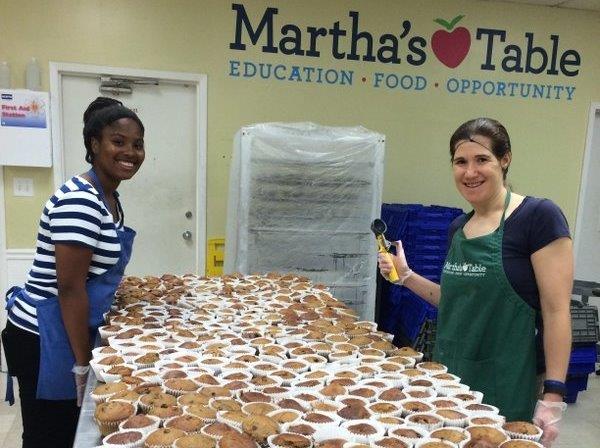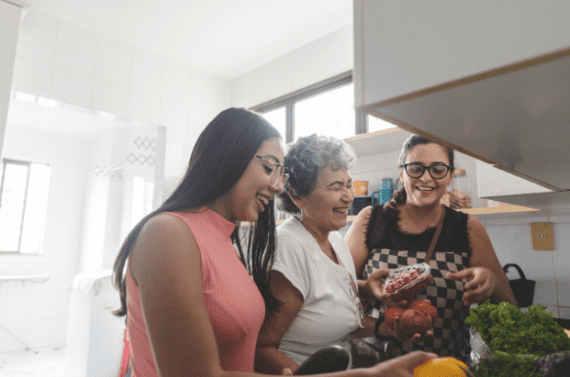Local charity is supported by many churches and members who volunteer
Editor’s note: This post is part of a weekly, year-long series called the Nourishing Effect. It explores how hunger affects health through the lens of the 2016 Hunger Report. The report is an annual publication of Bread for the World Institute.
By Caron Gremont
For over 35 years, Martha’s Table has been feeding the hungry and homeless in and around the District of Columbia. Like many other regional and national organizations dedicated to the fight against hunger, the focus has been on getting food — any food — to those in need, but not necessarily the best or right food.
Martha’s Table believes that everyone — regardless of income level — deserves a healthy life. While 55 percent of D.C. residents are overweight or obese, and with diabetes rates at 8 to 15 percent across the city, the problem is even more acute in low-income communities. In many cases, the population that Martha’s Table serves is disproportionally overweight or obese and diabetic. We believe we have a responsibility to provide food that supports the efforts of our community to lead a healthy life.
In addition to running free pop-up healthy grocery markets in elementary schools across D.C., Martha’s Table operates McKenna’s Wagon, a mobile food truck that rolls out 7 days a week, 365 days a year to feed the homeless and hungry at three established downtown locations.
Each evening, McKenna’s Wagon feeds 300 of the city’s most vulnerable men and women, with a hot, one-pot meal, sandwiches, dessert, and a drink. The one-pot meal, made on-site at Martha’s Table, consists of fresh vegetables, rice, and meat or beans. For many years, we have depended on contributions from local grocery stores, which consisted of, among other items, sheet cakes, cookies and pies just past their sell-by dates for dessert on the Wagon. Each afternoon, a crew of volunteers would come to Martha’s Table to help us place these desserts on single serving plates and wrap them in plastic wrap to go out on the van in the evening. These desserts would often include pink and red heart-shaped cookies days after Valentine’s Day, or standard “Happy Birthday” sheet cakes that just didn’t sell.
Earlier this year, we at Martha’s Table decided to make a significant change. Instead of depending on donated sweets, we decided we would bake homemade muffins in-house and send those out on the Wagon for dessert each evening. Before we made this change, we tested out some muffin recipes and asked our clients for feedback. We started with slightly sweeter muffins and, over time, decreased the sugar content. The muffins — which vary from oat banana to blueberry to chocolate chip — are all made with whole-wheat flour. The same volunteers who showed up daily to package the grocery store sweets now help with muffin baking. And, each evening, fresh (and sometimes warm!) muffins go out to hundreds of men and women in D.C. as part of their meal. In addition to supporting health, freshly made muffins make the men and women we serve feel valued and important because we care enough about them to bake, from scratch, healthy treats. This is a positive step towards healthier living for the community we work with in Washington, D.C.
Caron Gremont is the senior director of healthy eating at Martha’s Table in Washington, D.C.



